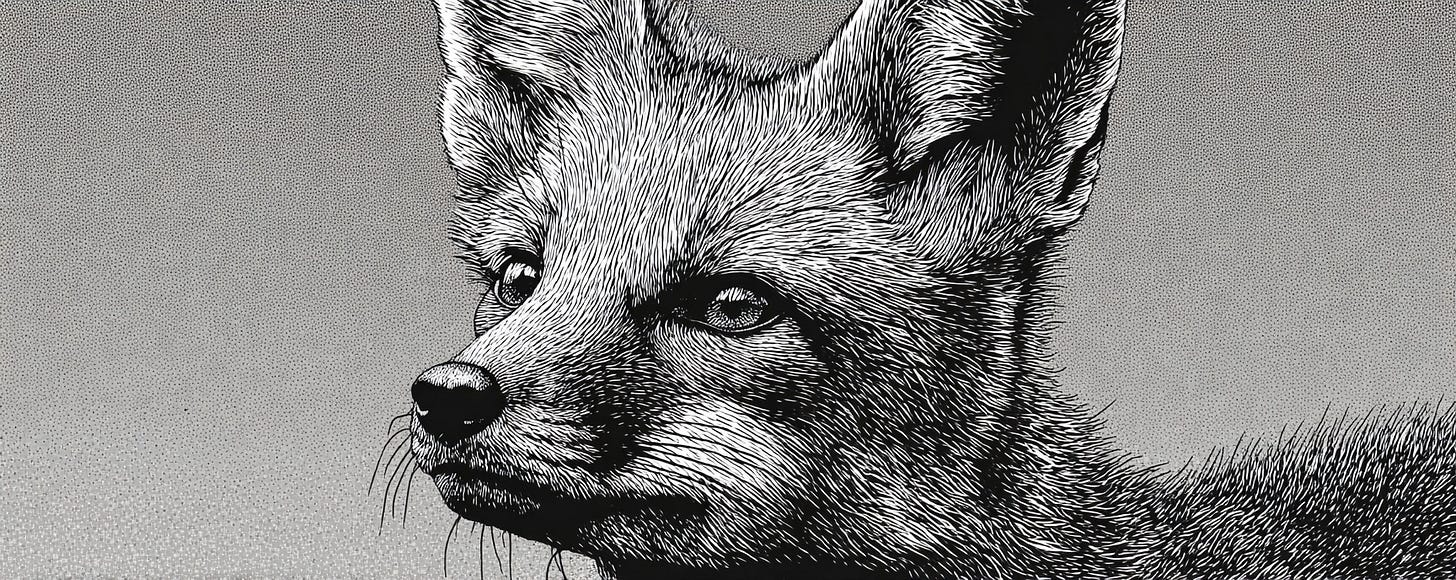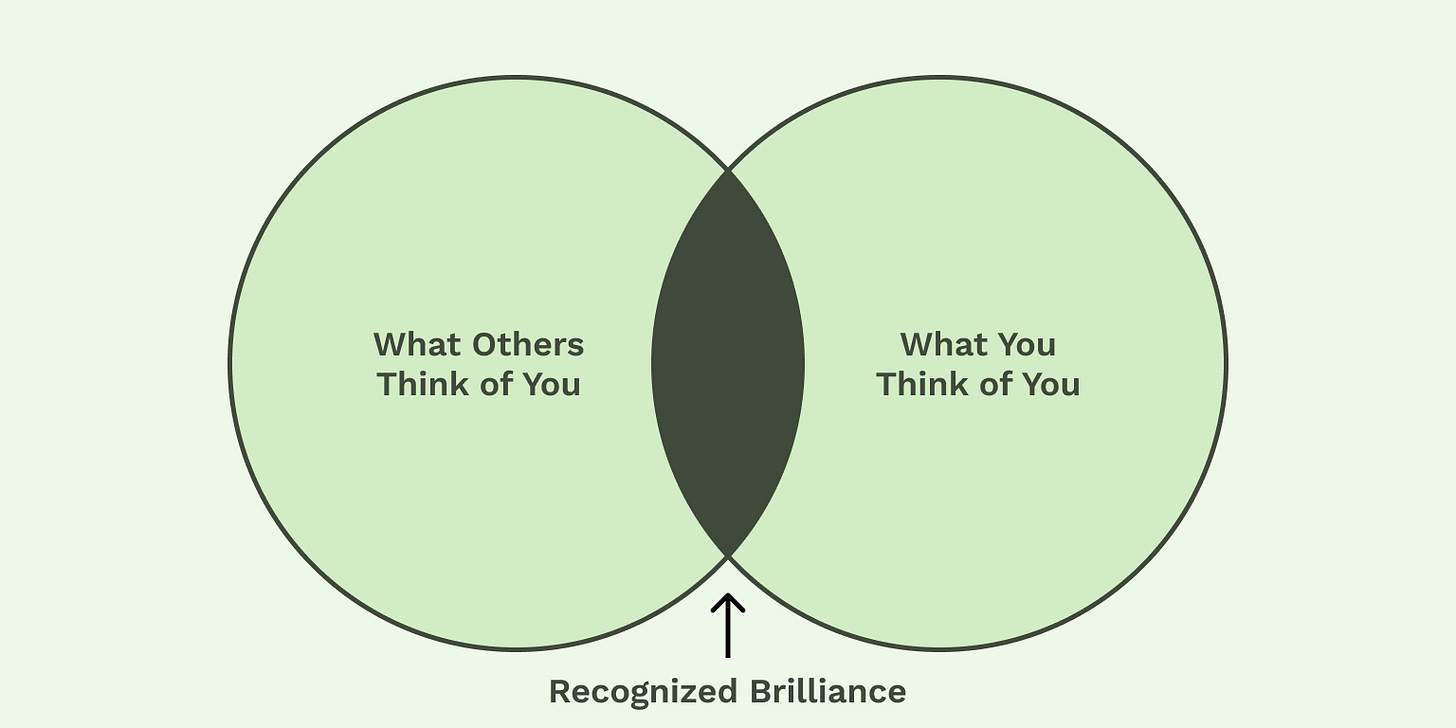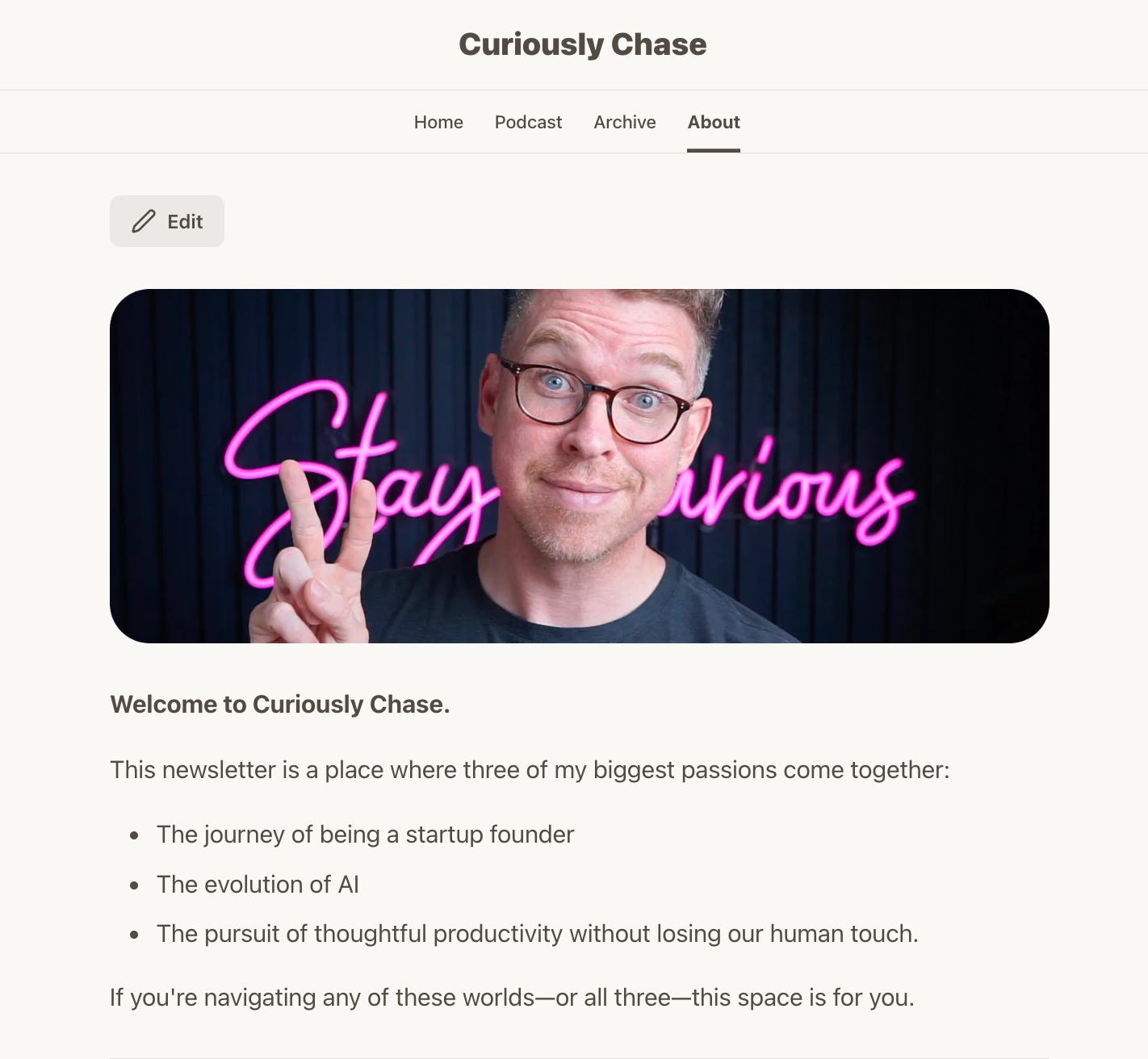The Space Between Humility and Hubris
Growing in my role as a startup co-founder
This issue is a Founder Insight, an essay about my personal experiences and lessons learned from building and leading a startup.
Learning to lead as a co-founder hasn’t just been about me—it’s been about all of us who are figuring out what it means to step into our own (sometimes awkward, sometimes awesome) power.
And if you’re reading this, you’re part of that “us.”
For as long as I can remember, I’ve struggled with owning the good things I’ve done.
When people compliment my work or tell me I have a unique way of thinking, I often flinch inwardly.
Not because I don’t appreciate it—but because accepting it is…complicated.
There’s this tug-of-war between wanting to acknowledge the power in what I’ve created and my deeply embedded instinct to brush it off, to say “it’s no big deal.”
I’ve learned to mask self-doubt with modesty—to talk about the things I’ve done as if they happened by accident or didn’t matter much in the first place.
But the truth is: they do matter. And the more I ignore that, the more it costs me—professionally, personally, emotionally and spiritually.
The Venn Diagram of Real Confidence
There’s a mental image I keep returning to—a Venn diagram with two circles.
One represents what others think of you.
The other represents what you think of yourself.
If people tell you you’re brilliant but you refuse to believe it, that’s humility (the definition of it that I grew up with).
If you believe you’re brilliant but no one else does, that can veer into hubris.
But in that rare and meaningful overlap—where both you and others recognize something valuable in what you’ve done—that’s where authentic confidence lives.
That’s the place I want to operate from. Not to seek constant validation. Not to be loud about my work. But to be able to say, quietly and clearly, “Yes, I did that. And it was good.”
And when someone says, “You think in a unique way,” to respond without discomfort or self-deprecation. To say, “Thank you—I appreciate that,” and to know it’s true.
Humility That Isn’t Self-Erasure
The kind of humility I grew up with often meant shrinking yourself.
You downplayed achievements. You said things weren’t a big deal—even when they were. You acted like what you did didn’t matter so that no one would think you thought too highly of yourself.
But I’ve come to believe that this isn’t humility—it’s erasure.
It’s a performance that keeps you small, even when you have something to offer. It keeps you from believing in your own capacity, and from building on it.
True humility doesn’t require invisibility. It allows you to say, “I did something meaningful,” without making it about your ego.
It allows you to hold your own success gently, without needing to inflate or deflect it.
The Cost of Self-Doubt
This way of being—this reluctance to believe in my own value—has caused real harm.
I can trace it through relationships where I couldn’t accept appreciation, through jobs where I downplayed my contributions, through missed opportunities where I assumed someone else was a better fit.
And in the context of being a founder, that harm compounds.
A company often rises or falls on the conviction of the people building it.
When I hold back my belief in what I’ve done, I’m not just limiting myself—I’m limiting the people who are betting on me.
That’s not the kind of leader I want to be.
This isn’t just my story, either.
I’m guessing some of you have your own “quiet erasure” moments—those times you let self-doubt take the wheel, even when you had every reason to own your wins. 1
A New Way Forward
I want to move toward a version of myself who can say “thank you” without discomfort, who can acknowledge a strength without needing to downplay it or disguise it as luck.
I want to live in that middle space of the Venn diagram—where I believe in the things I’ve done, and where that belief is grounded in reality, not ego.
I want to stop waiting for others to drag me into that circle. I want to meet them there.
Not because I want to make everything about me, but because I want to stop pretending I have nothing to offer.
Because often times, I do.
So here’s my little experiment for us (that’s right…me and you): What if we start practicing a different kind of humility, together? What if, this week, when someone recognizes something valuable in us, we actually let it land?
Let’s see what happens if we let go of shrinking and try out that quiet, grounded confidence—at least for a moment. If it feels weird, or if you try it and want to talk about it, I’m all ears.
Field Notes
This is the part of the newsletter where I share tools, updates, experiments, and anything else worth passing on.
If you’re new here or you’ve been getting this newsletter for a while, I updated my About page with what I’m writing about, who it’s for and started to organize what I’ve written into topics.
AI Insights with Aaron and Chase
Aaron and I are going to ship our first episode of AI Builders Club soon, but we’re also sharing some of our insights on YouTube about working with AI!
This week we talked about how you’re probably managing LLMs all wrong, how to guarantee quality when building AI flows and how to use structured output for more powerful AI orchestration.
Go make something only you can (and own it),
Chase ✨🤘
If you feel like sharing, hit reply or drop a note. I’d love to hear how you navigate it (or even if you’re still figuring it out, like me).




